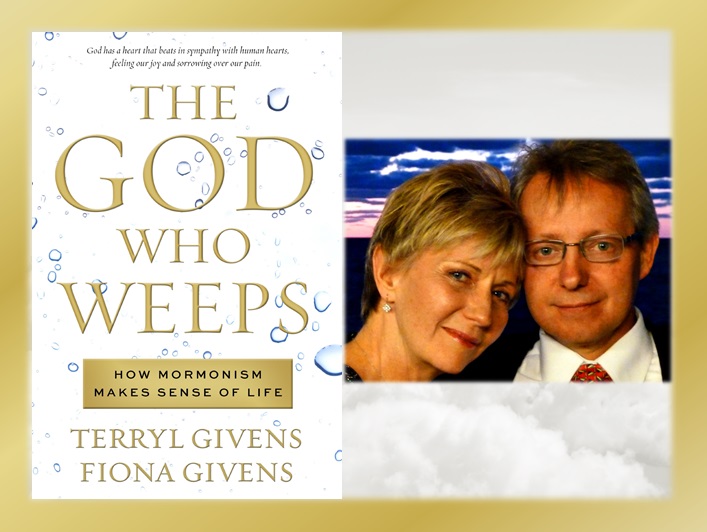
Written by Rich Rogers
“THE GOD WHO WEEPS.” Terryl Givens and Fiona Givens. 2012. Ensign Peak. Hardcover. 121 pages. $19.99
In the past year, I have read two books that have given me a completely new, refreshing and joyful view of God. The first was James Martin’s “Between Heaven and Mirth,” and “The God Who Weeps” was the second. And yet they are as opposite as can be.
In the years I have been writing this column, with a few exceptions, I’ve shied away from religious books. They are generally critic proof. But every so often one comes along that demands to brought to people’s attention.
This is one of those books. My only worry is that I will not be able to truly convey the depth and power of this book.
Husband-and-wife writing team Terryl Givens and Fiona Givens have put together five essays dealing with the basic aspects of the theology of The Church of Jesus Christ of Latter-day Saints.
In the Book of Moses, contained in the LDS book of scripture the Pearl of Great Price, is the story of the ancient prophet Enoch, who is shown, by God, all humanity from beginning to end. At one point, Enoch turns to God and sees that He is crying. Enoch’s question to God isn’t, “Why are you crying?”; the answer to that is obvious. Rather, Enoch is stunned by the fact that God, omnipotent and omniscient, cries, and he asks, “How is it that God can cry?”
Using this as their starting point, the Givens use their five essays to present a different view of God than most of us are used to. Using LDS scripture as their main reference points (apocryphal and literary references abound, as well ), they show a God who, rather than being a harsh disciplinarian and unyielding, is a God who is intimately involved in the lives of His children/creations.
The Supreme Being presented by the Givens is one who has chosen us and is doing everything He can to help and guide without taking away our own agency to choose. “God is personally invested in shepherding His children through the process of mortality and beyond. He is not predisposed to just the fast learners, the naturally inclined or the morally gifted. The project of human advancement that God designed offers hope to the entire human race. It is universal in its appeal and reach alike.” (Page 77)
God has chosen to be our Father – according to passages in the Book of Abraham – and, as such, the passage “Behold this is my work and my glory, to bring to pass the immortality and eternal life of man” takes on a deeper meaning. God is full of joy and wants His children to ultimately take part of His divine nature.
Each essay reveals new and amazing possibilities to the reader – possibilities often barely considered or only dimly seen or imagined.
There are very few pages of my copy that don’t have passages underlined; in fact, often entire pages are underlined.
The Givens write with a deeply literate yet accessible style that never talks down to the reader and yet doesn’t leave the reader confused or feeling left out.
Perhaps the fact that I read this book as I was passing through literally the darkest period of my life, bar none, influenced my view of this book, but I doubt it. This book is truly a pearl of great price and a process of joyful revelation. I envy you as you read it for your first time, which I hope will be one of many.
On a personal note, I’d like to take a moment here and thank the readers of The Independent for the joy I have been able to share with you all these years and for your patience with me over the last four months. As I said, it has been truly one of the darkest times in my life. My dear mother passed away unexpectedly in November, and things got ugly from that point on. It has been a rollercoaster ride of thrills and deep depression. I have also recently married – a beacon in the darkness. And that brings me to the point. With all the events of the last four months, my column has been in suspended animation, with occasional signs of life. Well, it’s going into suspended animation for a bit again. Hopefully only a month. In April, I will be moving to Italy for a period to be with my wife. Once I’m settled, I will continue to write my column from Florence. I hope you will be patient with me, and soon we’ll be sharing our love of books again. Thanks for all the good times.
Rich welcomes question and comments from readers. You may contact him through this paper or by email at [email protected]



